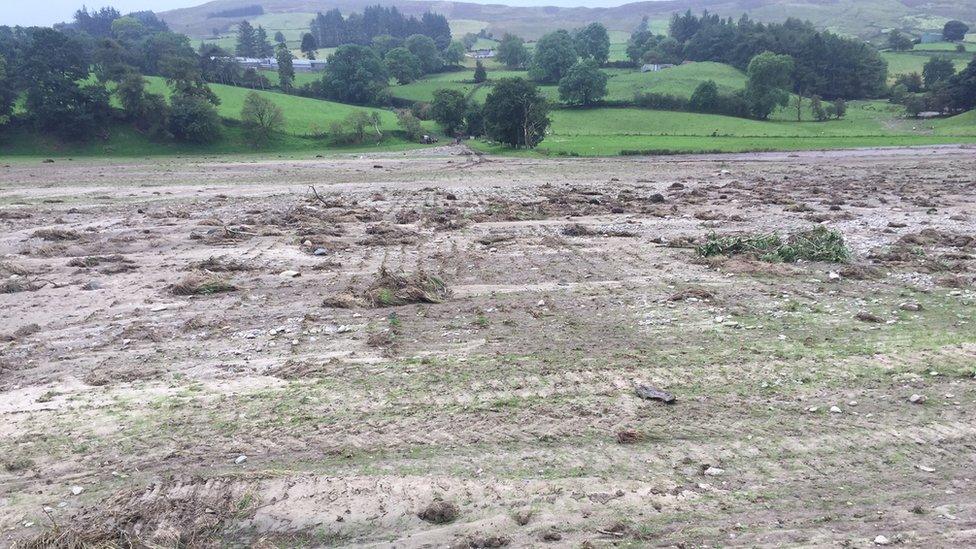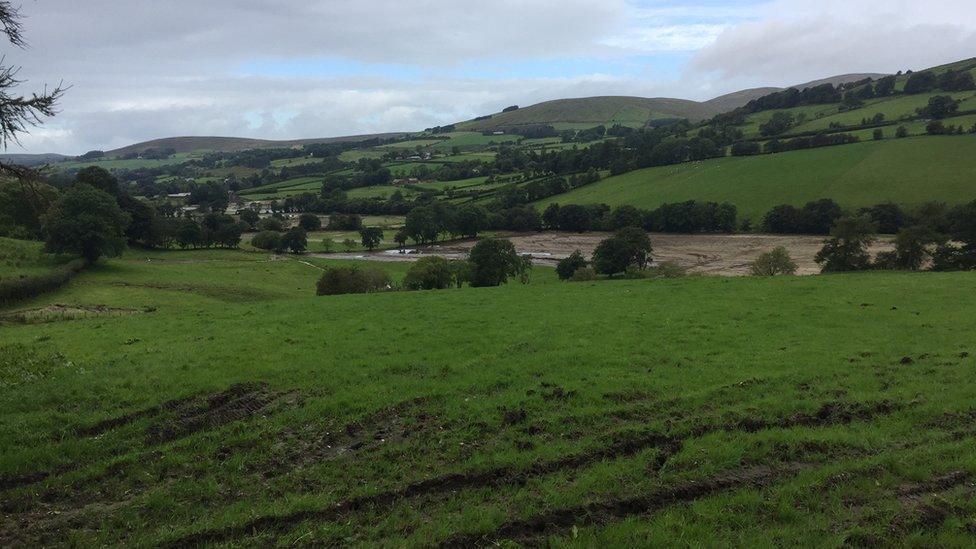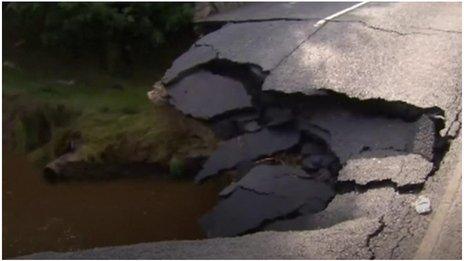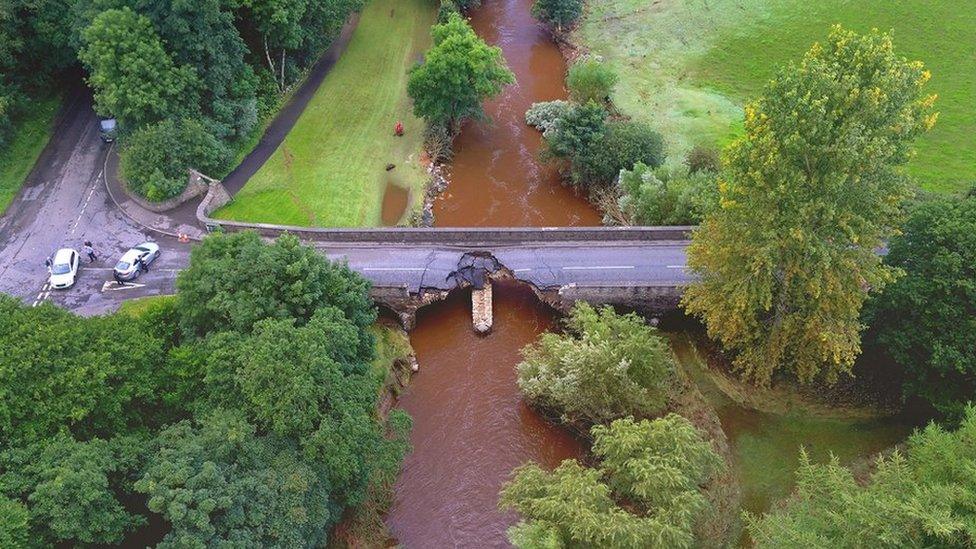North west floods: Stormont stalemate hits flood scheme
- Published
- comments

Fertile agriculture land was covered in thick mud and rubble following the August flooding
A financial support scheme for farms hit by flooding cannot be sanctioned until a Stormont agriculture minister is in place, it has emerged.
More than 1,000 hectares of farmland flooded in the north west when record rainfall fell across the region in a single night in August.
NI's Department of Agriculture, Environment and Rural Affairs (Daera) said more than 200 farms were affected.
No scheme can proceed until a farming minister is in place, it added.
A Daera spokesman said the department had been exploring potential options on how to further assist farms affected by the flooding.
"This is so we are in a position to present an incoming minister with evidence regarding the need for a scheme and options for what such a scheme might look like," he said.
Northern Ireland has been without an executive since January 2017, when the governing parties - the Democratic Unionist Party (DUP) and Sinn Féin - split in a bitter row over a botched energy scheme.
The Daera spokesman said the absence of a minister and executive meant "the ability of the department to progress any option for a scheme is limited".
Persistent rain
While the department has been unable to implement a specific financial response scheme, they have been able to bring forward the EU's current Common Agricultural Policy (CAP) payments for affected farmers.
Daera also secured an increase in CAP payments, with the EU authorising advance payments of 70% in October - up from a promised 50%.

Farms along the Glenelly Valley were affected
"The department made a particular effort to issue advance CAP payments to businesses affected by the flooding of 22/23 August 2017, with 92% of the affected businesses receiving payment by 31 October," the spokesman added.
A total of 223 farm businesses submitted "force majeure" notifications as a result of the August floods.
This ensures farmers do not compromise eligibility for their EU payments.
The Daera spokesman said farming in the affected area continued to be impacted.
"Persistent wet weather since August has hampered flood recovery action on farmland affected by debris deposition, erosion and field-boundary damage," he said.
"More generally, it has also caused substantial disruption to silage and arable crop harvesting."
The department said 350 sheep and 14 cattle were lost in the flood, while 18 pollution incidents caused by the heavy rain have been investigated.
- Published15 January 2018

- Published15 January 2018

- Published12 December 2017
